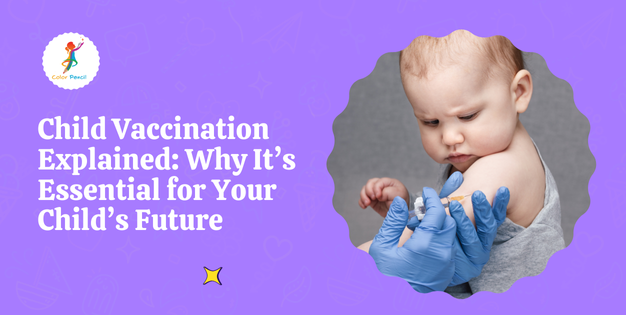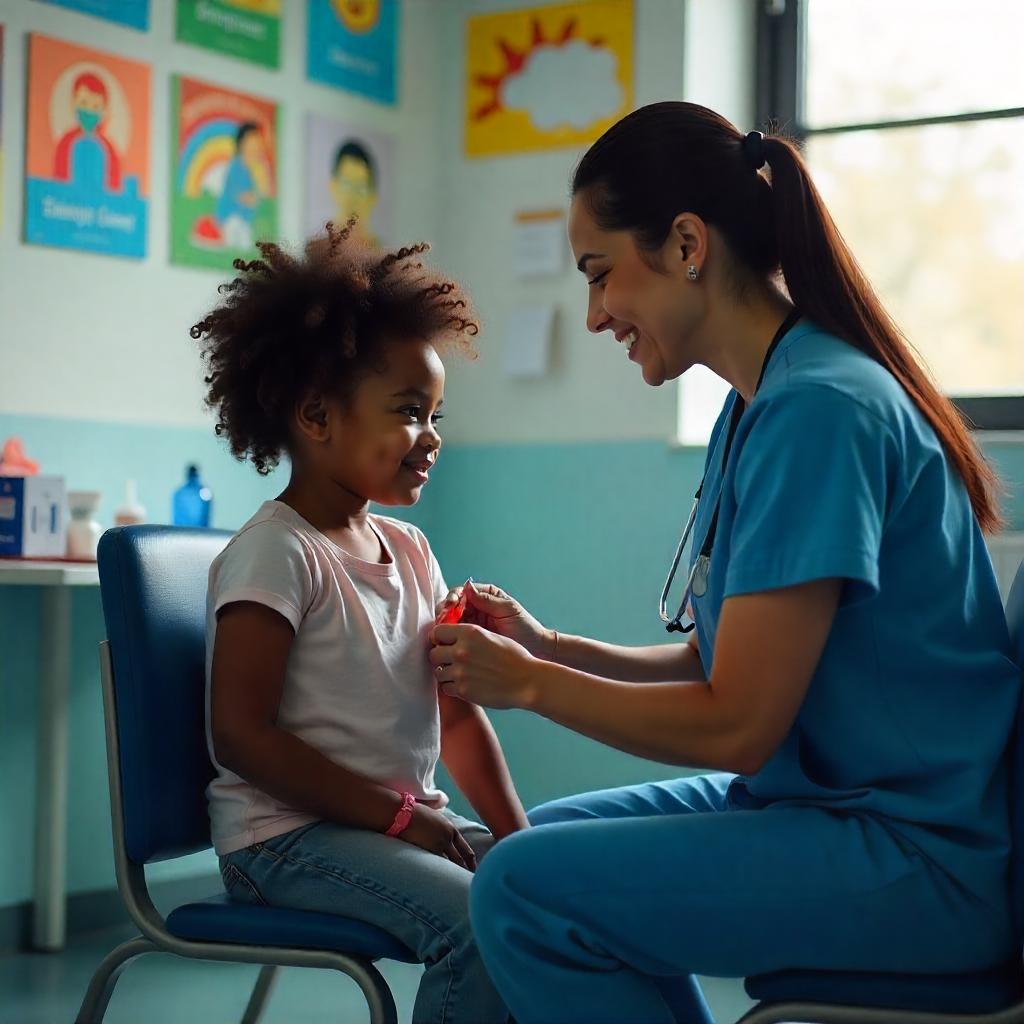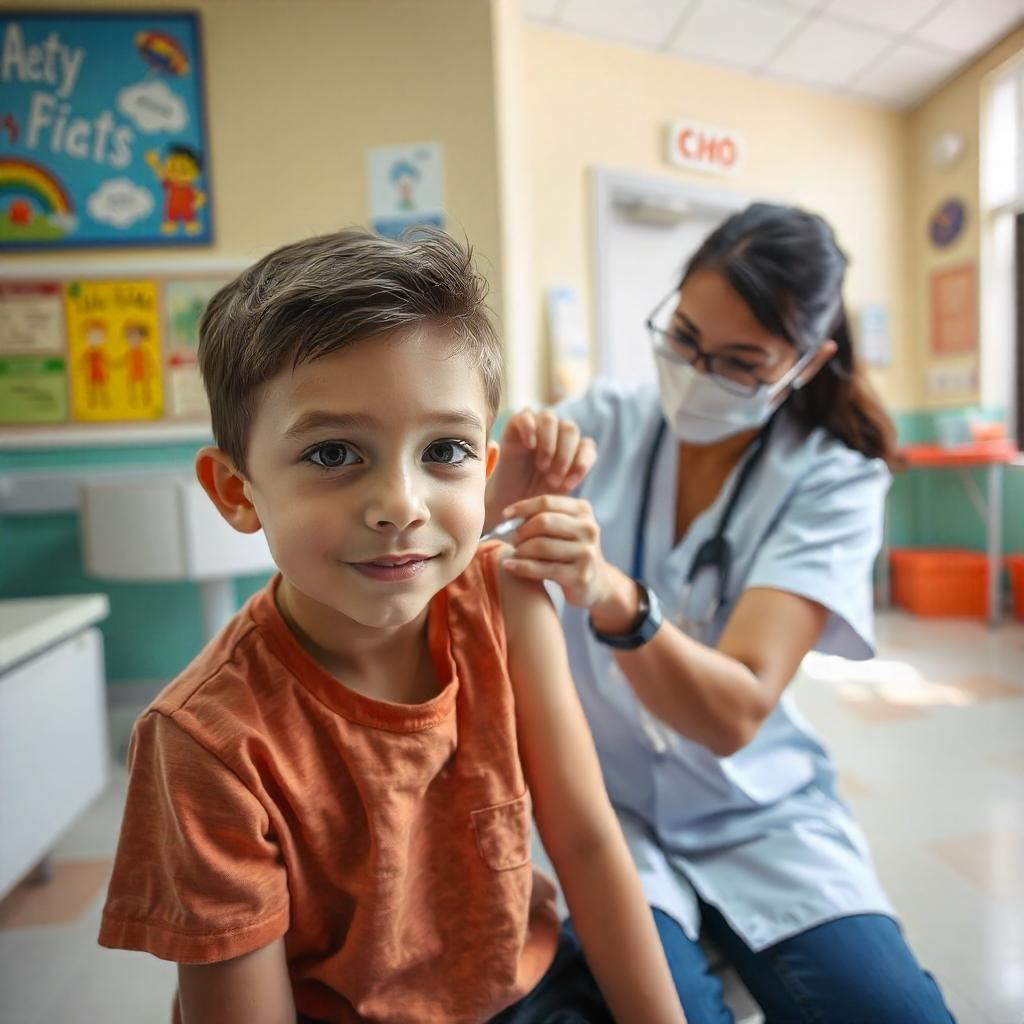
Toddler Refuses to Share? Gentle Ways to Teach Sharing Toys Without Tears
If you’ve ever asked yourself how to teach kids to share without a meltdown, you’re not alone. Sharing doesn’t come naturally to toddlers. In fact,

Parenting comes with a million decisions—some easy, some overwhelming. Vaccination shouldn’t be one of the hard ones. It’s one of the simplest, most effective ways to keep your child healthy and protect them from serious illnesses.
Yet, with so much information (and misinformation) out there, it’s normal to have questions. Here’s what every parent should know about why childhood vaccines matter and how they help in ways you might not have thought about.

It’s easy to think of polio, measles, or whooping cough as problems of the past. But here’s the thing: They still exist.
Measles outbreaks have happened in the U.S. because vaccination rates dropped. Whooping cough still hospitalizes newborns every year. And in some parts of the world, polio is just a plane ride away.
The reason we don’t see these diseases often isn’t luck—it’s because vaccines are doing their job. Skipping them brings these dangers back.
Some parents worry that vaccines might overwhelm a baby’s immune system. But babies come into the world with very little defense against deadly diseases.
Vaccines train their immune system in a safe, controlled way—without them having to suffer through the real thing. Think of it like teaching them to swim in shallow water before throwing them in the deep end.
Skipping vaccines doesn’t strengthen their immune system—it just leaves them unprotected when they need it most.

Some kids can’t get vaccinated due to medical reasons. Newborns, kids with weak immune systems, and those undergoing medical treatments rely on everyone else being protected to stay safe.
When enough people are vaccinated, diseases don’t have a way to spread. That’s what herd immunity is—it’s a shield for the most vulnerable.
By vaccinating your child, you’re not just protecting them—you’re helping protect others, too.
It’s normal to worry about what goes into your child’s body. But vaccines are one of the most tested and monitored medical advancements in history.
If you’re worried about safety, talk to your pediatrician. They’ll give you the facts—not social media fearmongering.

Some parents consider waiting or “spacing out” vaccines. But there’s no medical reason to do this. In fact, delaying shots means:
The recommended vaccine schedule is carefully planned to protect kids when they need it most. Sticking to it is the safest option.
Feeling Overwhelmed? Let’s Talk! Join Our Parent Forum and Get Expert Advice & Support!
Vaccines protect children from dangerous diseases that could cause severe illness or complications. They also help stop outbreaks and keep communities safe.
Vaccines protect against illnesses like measles, mumps, rubella, whooping cough, polio, tetanus, flu, hepatitis B, and more.
Yes! Child vaccination benefits far outweigh the risks. Vaccines go through rigorous testing before approval and are continuously monitored for safety.
Herd immunity happens when a large percentage of the population is vaccinated, making it harder for diseases to spread. This protects babies, elderly people, and those with weak immune systems who cannot be vaccinated.
Your pediatrician or local health department can provide the childhood immunization schedule recommended by health organizations like the World Health Organization (WHO) and the Centers for Disease Control and Prevention (CDC).
Vaccinating your child is one of the most important decisions you can make for their health. It’s safe, effective, and essential in preventing dangerous diseases. By keeping up with child vaccination schedules, parents contribute to a healthier, safer future for their kids and their communities.
Let’s protect our little ones today, so they can enjoy a brighter, healthier tomorrow!